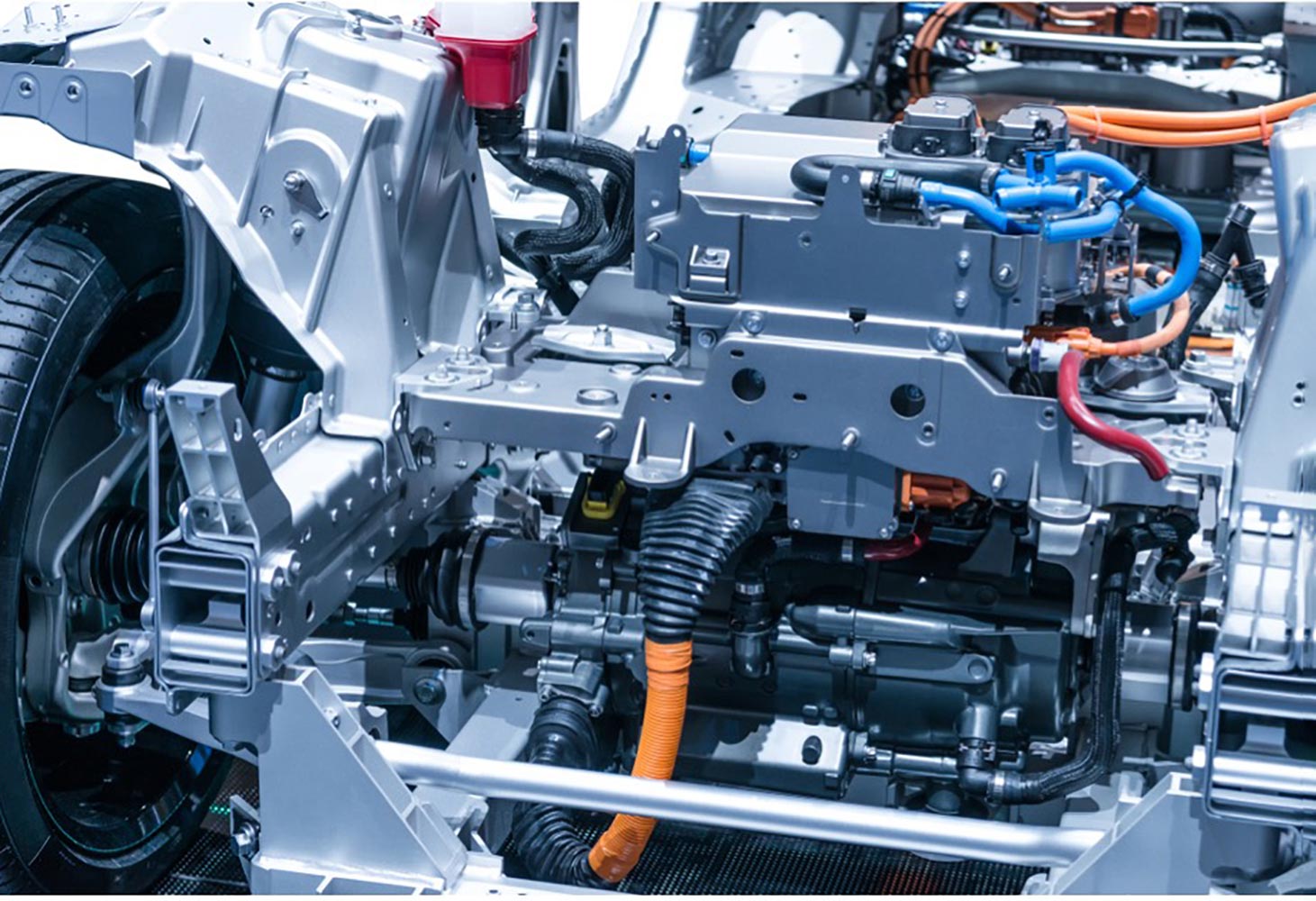
Savant Labs expands HEV and EV fluid testing capabilities
Savant Labs, an independent testing laboratory and research center based in Midland, Michigan, U.S.A. and part of the Savant Group, announced the expansion of its hybrid electric vehicle (HEV) and electric vehicle (EV) testing capabilities for lubricating oils, fluids, and greases.
Many EV components are made from materials not typical in an internal combustion engine (ICE) vehicle and there are different material compatibility requirements for EV fluids. In addition, the EV powertrain has fewer moving parts and operates under conditions that are, in many ways, different from those of ICE vehicles. The fluid performance characteristics of electrical conductivity, thermal transfer, copper corrosion protection, and elastomer compatibility are key considerations. Developing and testing lubricants and fluids engineered to meet the specific requirements for electric vehicles are critical to providing protection and assurance.
Different EV drivetrain fluid formulations may have inherently varying corrosion rates producing conducting layer deposits in both solution and vapor phases. Conductive deposits form from the chemical reaction of the lubricating fluid and copper at elevated temperatures under low voltage electrified conditions both in the fluid and at the vapor state.
Wire Corrosion Test
The Wire Corrosion Test (WCT), originally developed by Lubrizol, is a new test being offered by Savant Labs. In agreement with Lubrizol, Savant Labs is the sole source for this testing service in North America.
The WCT identifies corrosion and depletion of copper on a test wire in both fluid and vapor state. The WCT concept is to evaluate chemical reactions forming corrosion at temperatures compatible to actual performance. Oxidation and the ensuing chemical reaction on the copper wire can cause depletion of the motor winding in the EV powertrain. A sensitive wire resistance measurement method is utilized to provide a real-time assessment of copper loss due to corrosion. The test provides EV fluid formulators a direct, quantitative measurement of this important attribute as opposed to current methods that attempt to infer this from visual inspection or from copper concentrations in solution.
Conductive Deposit Test
In addition, the Conductive Deposit Test (CDT) is now also available. The testing equipment was developed by Tannas Co., which is a member of the Savant Group.
CDT is a unique test that identifies the formation of conductive bridging between tightly spaced conductors under an applied voltage. CDT emulates conditions where you have multiple conductors in close contact with lubricating fluids under potentially restricted flow conditions or condensed vapors. Motor windings are a good example.
The CDT reveals destructive conductive deposits forming from the chemical reaction of the lubricating fluid and copper at elevated temperatures under low voltage, electrified conditions, both in the fluid and vapor state. The formation of conducting layer deposits, a corrosion product, has been identified as a failure mechanism for current electric motor designs. A measurement of resistance across a gap is used as an assessment of the deposit formation.
Both CDT and WCT tests are available at Savant Labs.
EV grease testing for gears and bearings
The e-motor delivering power within the drivetrain provides full torque from the start and maintains it over a wide range of speeds. High-torque and low-speed combinations place additional stress on drivetrain components, like the gears and bearings. ASTM International’s committee already has many lubricant-related standards in place that can be adapted to the electric vehicle market and spur its future growth. Savant Labs currently can perform many of these EV grease tests identified by ASTM.
Electric drivetrain fluids (EDF)
While there are currently no finalized standards for electric drivetrain fluids, there is an upcoming SAE instruction document (SAE J3200) under development focusing on thermal and electrical conductivity, oxidation, and copper corrosion.
“Our commitment to expand our testing capabilities and highly skilled workforce allows us to help our customers prepare for the future as they develop new EV fluids to meet the expanding EV industry requirements,” said Norm Kanar, Marketing & Sales manager. “New challenges will arise to meet the demands for EV fluids and Savant Labs are here to assist with solving the more complex issues.”
The Savant Group continues to work with a consortium of companies to determine if more broadly applicable standardized tests can be developed in this area.














